Greetings Steemians! Today I'm starting a new series, one yet to feature on Steemit and hopefully something valuable which we can all learn from _

Have you ever heard of idioms? They are an important and integral part of Chinese vocabulary which make the language much more colourful. In Chinese, idioms can take a concept, idea or philosophy, and condense these to 4 word characters. Idioms are a large part of Chinese Traditional Culture and are used frequently when describing suitable situations.
Why talk about the stories behind the idioms?
Idioms have had long historical significance, they actually were derived from wisdom passed down from the ancient times. The origins of idioms are actually from every day life, and many reflect the Chinese culture within it's meaning. Behind the meaning of each idiom, there are stories that help explain the meaning as well as insights into classical literature. My goal is to teach the meaning of these idioms through examples of my own life experience, hopefully you'll find them interesting! :)
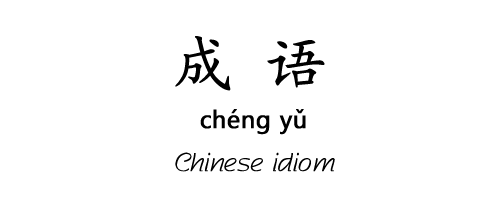
My first idiom story - Love me, love my dog ^^
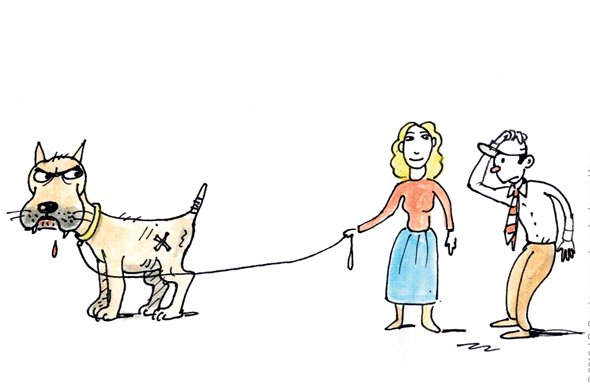
This idiom in it's most direct translation means to love a house, you must also love the crow which sits on the roof. Most translations of this idiom to English are actually very cute, the most popular one - Love me, love my dog, means to love someone, one must also love their dog. Strange how a crow turns into a dog translating Chinese to English right? I'm sure you can understand that the underlying meaning of this idiom is to love someone, one most love the things (or people) that they also love, sometimes it can also be used to describe when one has too much biased love towards something ^ ^
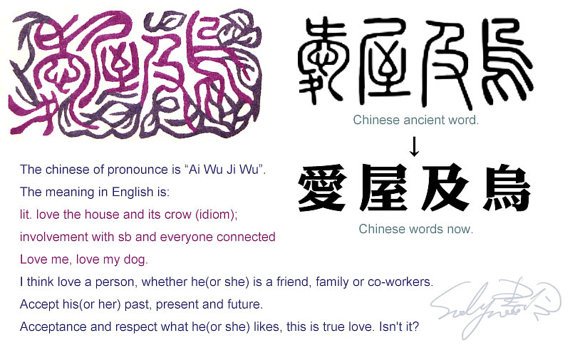
Chinese people don't like crows :(
Crows are a black coloured bird and are highly intelligent. Infact, they are roughly the same intelligence as pet dogs. Even though they can be quite destructive to farm crops, Crows are also useful in controlling pests.
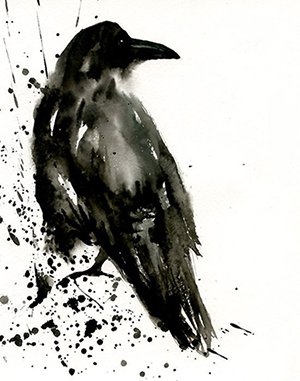
The negative sentiment of Crows in China are not however shared worldwide. For instance, in England, the crows are considered treasures by the Royal family.

Prior to the Tang Dynasty, Crows were actually considered auspicious and bringers of good prophecies. After the Tang Dynasty, opinion changed and Crows were then thought to be bearers of bad news.

Crows were then subject to many superstitions which all considered their visits to be un-auspicious. If a crow were to land on your roof, then your home would encounter bad luck. So, the idiom, 'love me, love my dog' can be more easily understood as 'Loving someone means to love even the unlucky crows on their roof'. Moreover, it can be interpreted as loving someone means to love their shortcomings too.

Love me, Love my dog came from folklore.
During the Zhou Dynasty, King Wu of Zhou defeated last remnants of the Shang Dynasty and summoned a Chinese Noble named Jiang Ziya, he asked : "How do we treat the people of the Shang?". Jiang Ziya replied : "I heard that if you love someone, then you must love the crows on their roofs too; however if you hate someone, then you must also dislike their servants and housekeepers. So, after we kill all the enemies, what will it be?". After that, the saying of Love me, love my dog become an every day idiom.
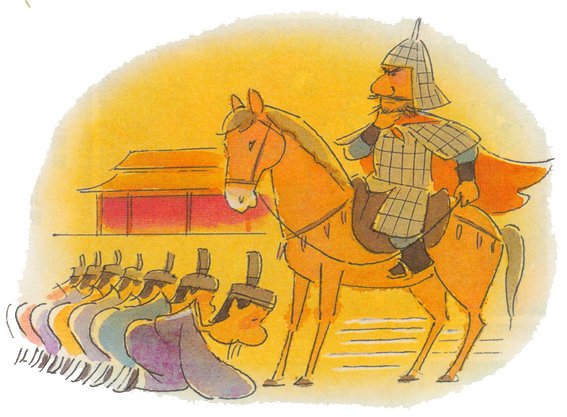
My Story :)
One of my cousins who is a director, found himself a girlfriend who happened to be an actress. Due to Chinese parents caring too much for their children, they felt it was their duty to choose a suitable partner for their son, and the actress found no favour from my cousins parents. Their thought process was, an actress would lead a very complicated and hectic lifestyle and be in no position to lead a normal lifestyle, or be a good wife. However, my cousin wasn't going to let this deter him from showing his parents how they were wrong. He used many opportunities to introduce her to his family and to their dismay, she was actually the opposite to their preconceptions of actresses, she was very attentive and caring and showed much filial obedience. In the end, my cousins' parents 'loved him, and his dog' and accepted her.
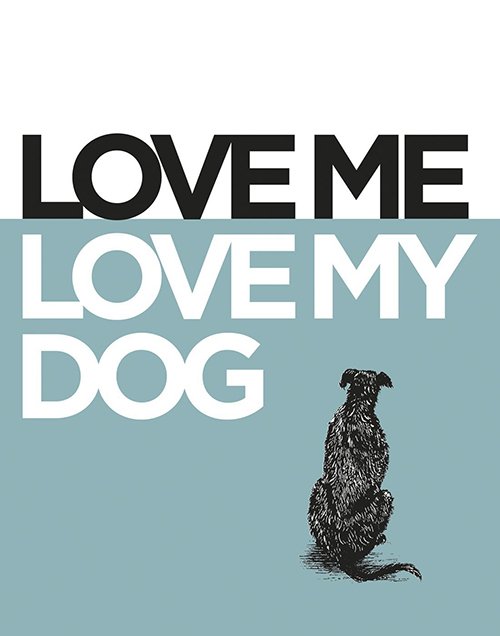 It's been very fun sharing this idiom and my story to go with it. There are actually many more idioms and stories i'd love to share with you so this will just be the first of many idioms and their stories i'll share with you in the future^ ^Of course, if you have any questions about this idiom or anything else, don't hesitate to leave a reply and I'll be happy to explain! Looking forward to interacting with everybody! =^ ^= 你好,亲爱的Steemit朋友们,今天我将开启一个全新的内容,这是Steemit上从来没有人尝试过的课题。不知道你有没有听说过“成语"? 它是中国汉字语言词汇中一部分词组或者是短句,它有着不凡的语言魅力。 
If you are interested in my other blogs related to "Chinese Culture" please check out these other blogs below |

